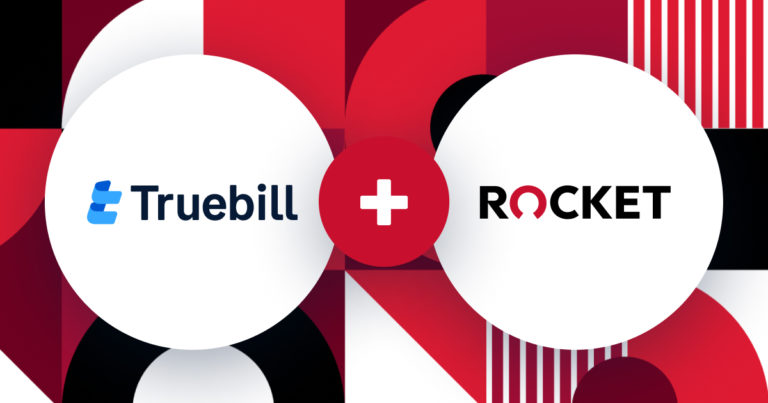2 Things Wall Street Misses About Rocket Mortgage Fintech Long Game

The fintech sector — along with the entire VC-backed tech sector — receives outsized valuations for adding customers fast even when profits are elusive. Then there’s publicly traded Rocket, which is America’s largest mortgage firm with a price-to-earnings multiple of only five. Granted, it has a $29 billion market cap, but is it undervalued considering these stats?
ROCKET’S MORTGAGE & FINTECH STATS
– Trailing 12 month revenue of $15.4 billion.
– Trailing 12 month EBITDA (net income) of $8.77 billion.
– Funded $275 billion in mortgages YTD through 3Q21 as America’s largest mortgage lender.
– Service $455 billion in mortgages as of 3Q21 as America’s 5th largest mortgage servicer.
– 11.5% of revenue YTD through 3Q21 was from non-mortgage activities including: lead generation (Core Digital Media), real estate network referrals (Rocket Homes), personal loans (Rocket Loans), title insurance (Amrock), and auto sales (Rocket Auto).
– Retained 91% of customers in the last trailing 12 months, which is 3.25 times average industry client retention*.
– The core team that controls Rocket also controls or invests in mainstream consumer brands like Dictionary.com, Thesaurus.com, StockX (sneaker fiends know), and more — which cuts customer acquisition cost.
WHY ROCKET ISN’T VALUED LIKE A FINTECH
These stats are quite strong compared to any scale fintech. Yet these stats don’t add up to a sexier stock price because the market is waiting for mortgage market cyclicality to play out.
Wall Street may believe that Rocket is a mortgage-only shop.
The U.S. mortgage industry funded $4.1 trillion in 2020 and will fund $3.93 trillion this year, per MBA. In 2022 and 2023, estimated U.S. mortgage fundings are $2.61 trillion and $2.53 trillion, respectively.
These fundings will go from almost three-quarters refinance loans in 2020 to almost three-quarters home purchase loans in 2023.
This is a material market shift that Wall Street is watching to see how Rocket and the mortgage sector handles.
2 THINGS WALL STREET MISSES ABOUT ROCKET FINTECH LONG GAME
But I think Wall Street misses two things about Rocket (and the non-startup segment of the mortgage industry):
1. Rocket will retain market share. Rocket and its fellow mortgage incumbents know quite well how to weather market transitions. A $2.5 trillion annual mortgage market is the norm, and these past few years have been an anomaly (and a gift to firms positioned correctly). So I think Wall Street will see strong players — Rocket included — retain and grow market share even as the market normalizes. And let’s not forget that $2.5 trillion per year in mortgages is a stat non-mortgage fintechs salivate over when they think of diversification.**
2. Rocket is truly a fintech that’s not just in mortgage. The land-and-expand playbook for non-mortgage fintechs is to gain millions of customers in an easy product like personal loans or deposits, then expand into harder areas like mortgage. Meanwhile, Rocket is running this playbook in reverse, which is easier. The latest under-reported move is Rocket’s $1.3 billion Truebill acquisition, which adds consumer financial education and readiness to America’s top lender.
Moves like this will mature with the mortgage market cycle described above. Meanwhile, the market will see how higher-valuation fintechs outside mortgage make a play for mortgage.
I predict valuations will meet somewhere in the middle, but this will take 2-3 years to play out — the fintech sector overall has a lot of cooling off to do. Mortgage-first firms like Rocket will earn higher valuations for their non-mortgage capabilities. And high-flying non-mortgage-first firms will see more normal financial services valuations as they mature into their fully diversified long game.
Below are links on the latest Rocket fintech deal, and this topic overall. Please comment below or reach out directly with your thoughts.
___
Reference:
– How Mortgage Lenders May Finally Get The Fintech Respect (and Valuations) They Deserve
*Rocket defines retention as the number of clients that were active at the beginning of a period and which remain active at the end of the period, divided by the number of clients that were active at the beginning of the period.
**Many fintech firms looking to enter mortgage don’t know how hard it is to operate mortgage at scale. Even a $2-4 billion/yr (in fundings) mortgage shop requires sales, service, capital markets, compliance, and operational capabilities far beyond that of non-mortgage shops. It gets exponentially harder when you get to $5 billion/yr, then $10 billion/yr, and beyond. However, non-mortgage fintechs looking for mortgage diversification may be able to use their high valuations to buy scale mortgage production shops valued much lower in this next market transition.
I’ll do more on this topic shortly. Hit me with any comments you have here.
